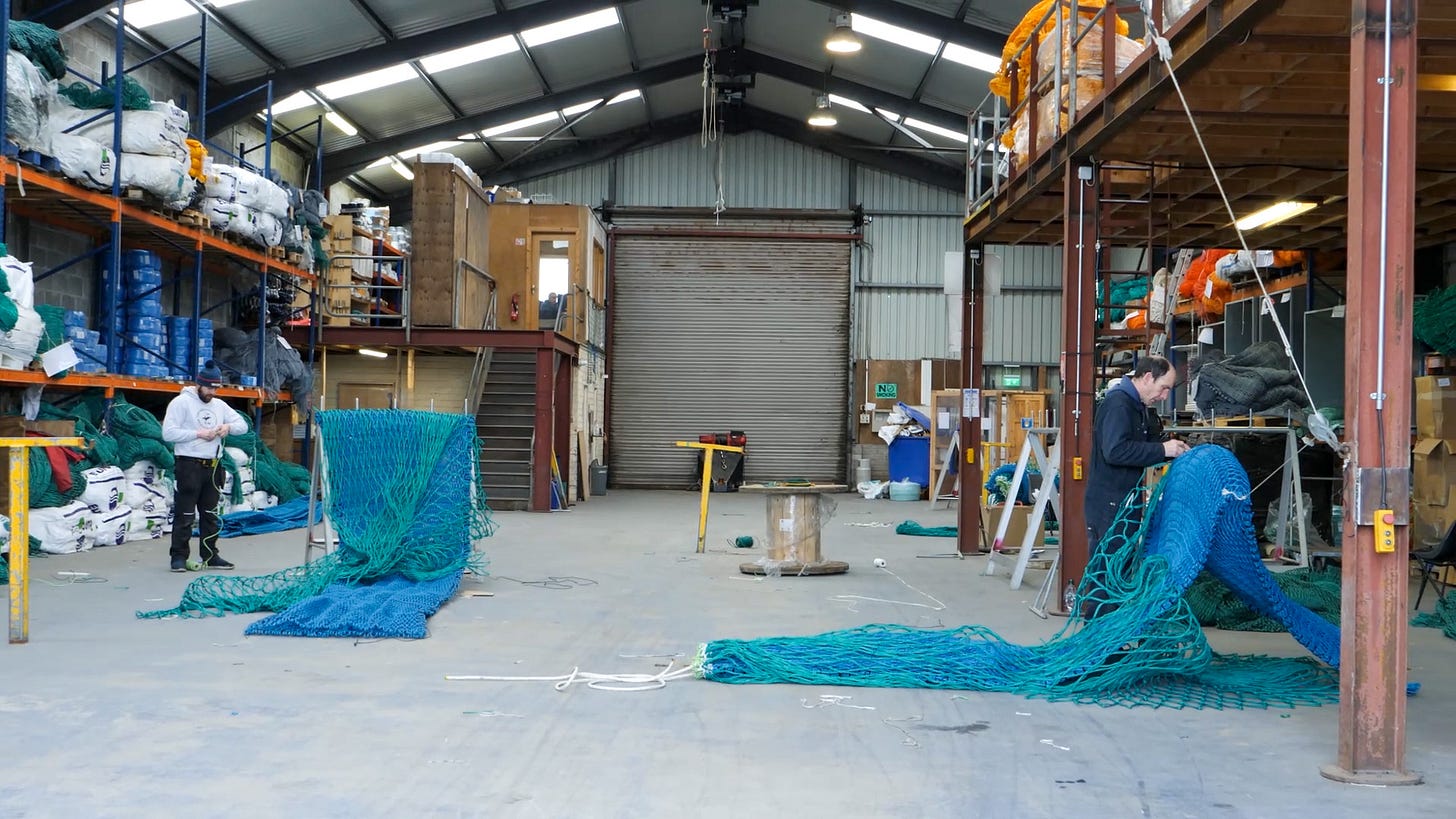Watch:
A retired trawler fisherman, and a founding member of Castletownbere’s first fishermen’s co-op 50 years ago, Mick Orpen is seen here in MacCarthys bar in Castletownbere. Mick’s son still fishes.
This short film by Noel Sweeney was filmed in early April ‘22, when fuel prices hikes and the proposed decommissioning scheme were hot topics.

The cards are on the table, but it’s unclear how much of Castletownbere’s fishing fleet is set to be scrapped, following widespread dissatisfaction with the size of compensation packages being offered to fishers under the Brexit Voluntary Permanent Cessation Scheme this week.
It was originally expected that almost half of the West Cork fishing town’s 40-strong fleet would go, with 19 applicants to the scheme, but sources say a number of fishing boat owners may not take up the offers of compensation after disappointing offer letters were received this week.
The figures offered to applicants are lower than what was expected, John Nolan, manager of the Castletownbere Fishermans Co-op based at Dinish Island, told Tripe + Drisheen.
Fishermen who applied were expecting to receive around €12,000 per gross registered tonnage of the vessel's recorded catch. It has now transpired that this will most likely be €10,000 pgt.
This would work out at between €200,000 and €300,000 less per boat than was expected.
Terms and conditions
“It's turned out now in the terms and conditions that if your boat is of a certain age and things like that, that you’ll be offered a good bit less,” John said.
Another of the terms and conditions of the scheme says that fishers who availed of the Covid 19 tie-up scheme will have to pay back what they received from the government.
Morale amongst fishers and their families, and as a result in the town in general, was low, John said.
“The one thing talk of decommissioning has done is killed the spirit,” he said. “We’ve had tough times in the past. We’ve had savage weather conditions, we’ve had tragedies at sea, even, where Castletownbere co-op lost two boats completely, with all hands lost. 10 lives lost in our community.”
He said that over the last few years Ireland is regulating its fishing industry out of business. And that this new decommissioning scheme, on top of quota cuts, are “taking the hope for people” and could have a ruinous effect on the local economy.
“If you just look at the economics, Castletownbere has 1,200 people, and the Beara Peninsula is probably another 3,500 people. If we take 30% of our fleet out, there will be €5m lost in wages to the local economy, as well as another €1.25m lost in the co-op because we’ll have less fish to process. I’m talking €6.25m per annum.”
Why could Castletownbere lose up to half of its fishing trawlers?
There are around 40 vessels currently operating out of Castletownbere. 19 Castletownbere-registered vessel owners have applied to have their boats and businesses scrapped as part of the Brexit Voluntary Permanent Cessation Scheme.
The scheme was introduced to cut the country's trawler fleet after Ireland lost 20% of its fishing quota in European waters in a Brexit deal.
64 vessels have applied for the scheme nationally and fishers whose applications are accepted stand to receive financial remuneration as compensation for decommissioning.
The government originally sought that 20% of the overall fleet would wind down through a €60 million decommissioning scheme, but 30% of the overall fleet ultimately applied. To accommodate the extra 10% of applicants, the industry and the government sought a further €20 million in European funds.
The EU provided €15 million of the €20 million sought, to compensate the extra 10% of the scheme's applicants, amounting to €75 million in total.
57 of the 64 national applicants have received letters from Bórd Iascaigh Mhara (BIM) with offers, fishing industry magazine The Skipper reported this week. But less than half of this number said they would be taking up the offer, with many reporting that the compensation offered was at least 25% less than what they wanted.
Impact on associated industries

Rodney O’Sullivan, the manager of fishing net company Swan Net Gundry, said he doesn’t believe all 19 of the Castletownbere applicants will take the compensation package due to the disappointment with offers.
“A few would take it,” he said. “In my opinion, in Castletown, I would say 10 or 12 out of the 19.”
The impacts on spin-off industries have not been fully considered, Rodney said, and he fears substantial losses to his own business if a substantial number of the Castletownbere fishing fleet goes.
“Losing 30% of the fleet will have a detrimental effect on the business because there’ll be less work. If the fishing goes in Castletownbere, really you might as well block the road and cut the peninsula off, because there will be nobody here. The town will be destroyed. Everything has a spin off of the fishing.”
He also fears for the skills base in his own industry.
“It's a trade that's a dying trade,” he said. “It's very hard to get guys into it. About half of the people in the trade are ex-fishermen who knew how to mend before working here.”
“If fishing goes from the area, that skill base is totally gone. It's unique to the fishing locality.”
Applicants who have been approved for the Brexit Voluntary Permanent Cessation Scheme have been given until February 8 to accept the offer.





Share this post